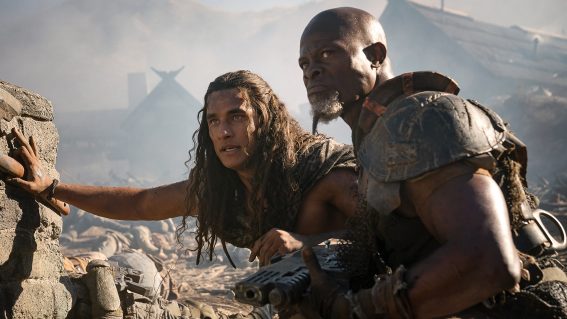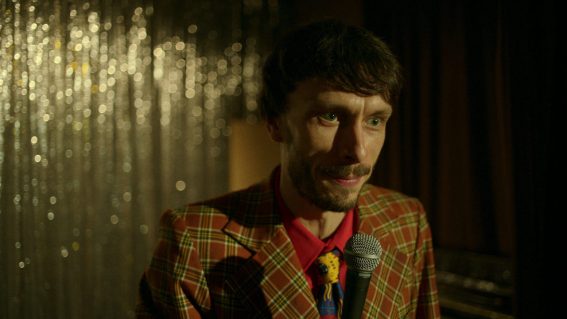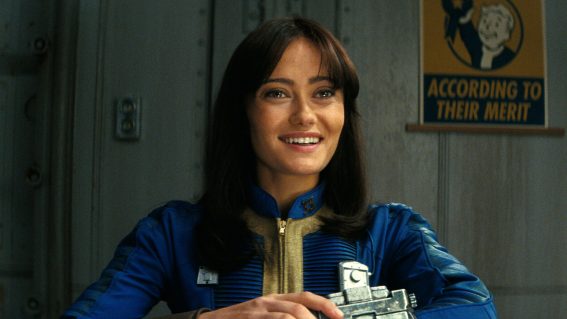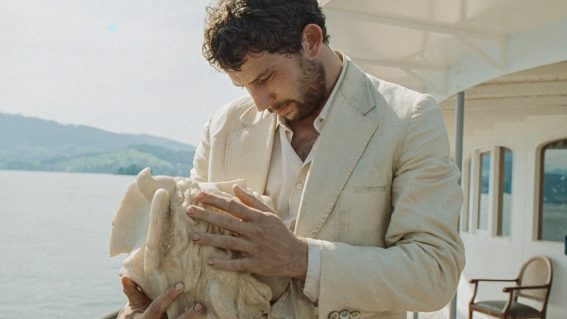Review: There Will Be Blood
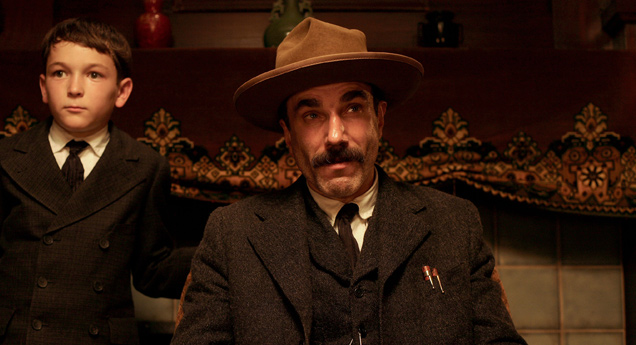
About ten minutes before the end of the screening of There Will Be Blood, an elderly gentleman squeezed past and sat himself down a few seats along from me. Being too engaged in the climactic scene to suggest to him that he’d wandered into the wrong cinema, I let him be. As soon as the credits began to roll, however, he realized his faux pas and anxiously asked me what film we’d been watching. I said, “It’s called There Will Be Blood”. With hindsight, I should have answered: “We were watching a masterpiece of contemporary cinema sir, it’s called There Will Be Blood. It combines a breathtaking visual experience with a tight-knit character study and sets that upon the epic canvas of turn-of-the-century California. Engaging throughout, it emerges as one of the year’s best and a must-see for all film lovers.” And he would have been happy.
The entire work revolves around the magnificent Daniel Day-Lewis (a.k.a. method actor extraordinaire), who plays Daniel Plainview as a man who will stop at nothing in his quest for success in the oil industry. Plainview is a deeply antisocial person (“I hate most people”), refusing to trust anyone other than himself. Day-Lewis’ performance is akin to a knockout roundhouse kick to the head. Nothing has stunned me more, not even Auckland’s ridiculously high movie ticket prices.
Paul Dano (the mute son from Little Miss Sunshine) is brilliantly mad as Eli Sunday, the evangelical young town preacher. He parallels the character of Plainview in several ways; Plainview is industry, Eli is religion but they are both corrupt and devious in their own indomitable way.
And at first glance it seems the film is saying something big about the twin strands of industry and religion in the early part of the Twentieth Century. On reflection, it’s a more personal affair, even a character study. There’s something horrific about the way Plainview pursues his goals, and the film wraps itself around him intimately, especially when he starts to strip away anything that gets between him and his intentions. Greed, it seems, is his only true friend.
Radiohead guitarist Jonny Greenwood has been enlisted to score the movie, and he provides the most interesting and compelling of musical accompaniments. His score is quite strange, full of urgent strings and mechanical percussion. It suggests a deep unsettling horror which builds throughout.
The script is very smart, and quite economical. Granted, the film is very long and certainly has an epic feel, but it is never boring. It meanders a bit towards the end, but concludes with an insane final scene which is unexpected and yet entirely fitting, and includes one of the best final lines of dialogue that I’ve heard in a while. That, my friends, is the way to end a movie.
But what really sells this film is the sheer craftsmanship at work. It is beautifully shot with grand widescreen panoramas and bold camera movements. The sound design, particularly when one character experiences deafness, is brilliant. The editing is frequently surprising and inventive. There Will Be Blood is a prime example of cinema being used to its full potential, and I absolutely loved it.



